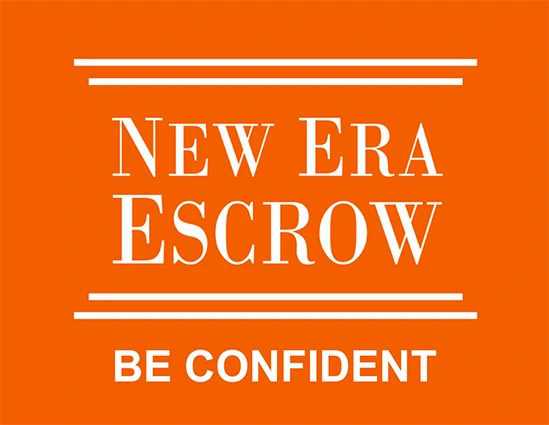
Table of Contents
ToggleWhat You Should Know About Key Escrow
Key escrow is a process in which a trusted third party or escrow agent holds a copy of an encryption key. If someone loses their encryption key or requires emergency access to encrypted data, the key can be retrieved from this escrow agent.
To put it simply, it’s like leaving a spare key to your house with a trusted friend. If you lose your main key, you can still gain access by retrieving the spare. In the digital world, this ensures that authorized users can access encrypted files even if something goes wrong with the original key.
How Does Key Escrow Work?
Here’s how key escrow works in a typical encryption environment:
- Encryption Key Generation: When data is encrypted, a unique key is created to lock (encrypt) and unlock (decrypt) the data.
- Storing the Key: Instead of keeping the encryption key with the user, a copy is sent to a secure third-party escrow service.
- Escrow Agent Security: The agent keeps the key in a highly secure environment, often protected by multiple layers of encryption and security protocols.
- Retrieving the Key: If the user loses access to the key or needs emergency access, they can request it from the escrow agent, typically following strict verification processes.
This process ensures encrypted data remains accessible to authorized parties while protected from unauthorized access.
Why is Key Escrow Important?
In an era of data breaches and hacking attempts, many organizations rely on encryption to protect sensitive information. But what happens if the key to encrypt this data is lost or inaccessible? Without a backup method like key escrow, this data could be permanently locked, causing significant problems.
Here are some key reasons why escrow key is critical:
- Business Continuity: If an employee who holds encryption keys leaves the company, escrow key ensures that the company still has access to critical data.
- Law Enforcement Access: In some cases, governments and law enforcement agencies may require access to encrypted data as part of investigations. Key escrow allows for controlled access while maintaining overall data security.
- Regulatory Compliance: Certain industries have regulations requiring secure methods for data access in emergencies. Escrow keys can help organizations meet these requirements.
Benefits of Key Escrow
The main benefit of key escrow is its ability to ensure data recovery in cases where the original encryption key is lost, damaged, or forgotten. This is particularly important for organizations that handle sensitive information, as losing access to encrypted data could lead to severe disruptions. Key escrow also provides controlled access, allowing only trusted authorities to retrieve keys when necessary, which reduces the risk of unauthorized access. Furthermore, escrow key is critical in ensuring business continuity by maintaining access to crucial data, even during employee turnover or accidental key loss. It also helps organizations meet regulatory compliance requirements, particularly in industries such as healthcare and finance, where laws often mandate secure data recovery solutions.
Drawbacks and Risks
Despite its advantages, key escrow presents some potential challenges. One significant issue is the level of trust required in the third party holding the encryption key. If the escrow agent is compromised or fails to handle the key properly, it could result in unauthorized access to the encrypted data. Another risk lies in centralizing the storage of encryption keys, creating a single point of failure. Should an attacker breach the escrow system, they may gain access to multiple keys, posing a substantial security risk. Additionally, there are privacy concerns, particularly regarding the potential for governments or other entities to exploit escrow key systems for unwarranted surveillance or data access.
Best Practices for Using Key Escrow
It is essential to follow several best practices to ensure the security and effectiveness of key escrow. Firstly, choosing a reputable escrow agent with a strong track record and robust security protocols is important. Additionally, strong encryption for the keys themselves adds an extra layer of protection, even when working with a trusted third party. Access to the keys should be restricted to authorized personnel only, thereby minimizing the risk of insider threats or misuse. Finally, regular security audits are essential to ensure that the escrow key system functions correctly and that no vulnerabilities have been introduced over time. These steps can help ensure that the escrow key remains a safe and reliable method for securing data access.
Key escrow provides an essential layer of security for organizations and individuals who rely on encryption to protect their data. It offers a backup method to access encrypted data in emergencies, helping to avoid data loss while maintaining tight control over access.
However, it’s crucial to weigh the benefits and potential risks carefully. Choosing a trustworthy escrow service and following best practices can go a long way toward ensuring that your data remains accessible and secure. For those in industries where compliance and data access are critical, key escrow is a solution worth considering.
Key Takeaways
- Remember the following text: Key escrow ensures secure data recovery. It provides a backup method to access encrypted data in cases of lost or inaccessible encryption keys. This makes it essential for business continuity and compliance.
- Balancing security and trust: While escrow key offers controlled access to sensitive data, it also poses risks, such as potential misuse or unauthorized access if the escrow agent is compromised.
- Best practices are crucial: To implement escrow key effectively, organizations should choose reputable escrow agents, limit key access to authorized personnel, and conduct regular security audits to ensure the system remains secure.
Share this article in :
